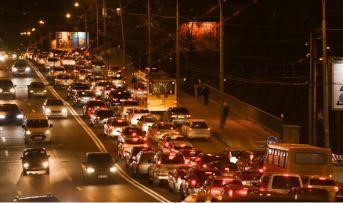General Insurance Blogs, Articles & Updates by - Magma HDI
Have us call you
- RENEW YOUR POLICY
- BUY NEW POLICY

Understanding your skin as an indicator of your overall health
Skin is the largest organ and serves as a protective barrier against external factors. It is responsible for our physical appearance and can also be a vital indicator of our overall health. Our skin often reflects the state of our internal health, and changes in appearance, texture, and colour may indicate underlying health issues. In this blog, we will dig deeper to understand skin and what it can tell about your overall health.
The first step in caring for our skin is understanding its anatomy and physiology. Our skin comprises three layers: the epidermis, dermis, and subcutaneous tissue. The epidermis is the outermost layer that protects against external destructive factors such as UV radiation, pollution, and microbes. The dermis contains connective tissue, blood vessels, and nerves, while the subcutaneous tissue provides insulation and energy storage. Understanding the functions of these layers can help us identify potential skin issues and take appropriate measures.
1. Skin as a reflection of gut health
The gut and skin are closely related, and changes in gut health can affect our skin's appearance. For example, acne and eczema are often linked to an imbalance in gut bacteria, leading to inflammation and other skin issues. Therefore, a healthy gut means healthy skin. Eating a healthy diet rich in fiber, probiotics, and prebiotics can improve your gut and, in turn, enhance skin health.
2. Skin as an indicator of nutritional deficiencies The appearance of our skin can also indicate nutritional deficiencies. For instance, dry and flaky skin may indicate a lack of vitamin A, whereas pale skin may indicate iron deficiency. Proper nutrition is necessary for healthy skin. A balanced diet with various fruits, vegetables, whole grains, protein, and carbohydrates can provide the nutrients for healthy skin.
3. Skin as a sign of chronic diseases
Skin changes can also indicate underlying chronic diseases such as diabetes, liver issues, and kidney disease. For example, yellowing of the skin may indicate liver problems and skin tags may indicate insulin resistance. Regular check-ups and a healthy lifestyle can prevent and manage these conditions. Additionally, online health insurance can provide financial support and ease the burden of medical expenses.
4. Skin as an indicator of hormonal imbalances
Hormonal imbalances can also affect the skin's appearance, leading to acne, hirsutism, and other skin conditions. Women may notice changes in the skin during their menstrual cycle, pregnancy, and menopause. Hormonal imbalances can be managed with proper medical care.
5. Skin as an indicator of stress and anxiety
Stress and anxiety can affect our skin's health, leading to acne, wrinkles, and dullness. Managing stress through meditation, exercise, and therapy can improve our skin's appearance and overall health.
6. Skin as a sign of aging
Our skin undergoes various changes, including wrinkles, fine lines, and age spots. However, premature aging can be prevented by avoiding excessive sun exposure, maintaining a healthy diet, and avoiding smoking and alcohol consumption.
7. Skin as an indicator of autoimmune diseases
Autoimmune disorders occur when your immune system attacks and destroys healthy cells. These disorders can also affect the skin's appearance, causing rashes, ulcers, and discolouration. These conditions require proper medical diagnosis and treatment to manage symptoms and prevent further complications.
8. Skin as an indicator of environmental exposure
The skin can also indicate environmental exposure to toxins, pollutants, and other harmful substances. Prolonged exposure to UV radiation from the sun can cause sunburn, skin cancer, and premature aging. Chemical exposure, such as pesticides and industrial chemicals, can cause skin irritation and allergic reactions. Proper protective measures, such as wearing sunscreen and protective clothing, can prevent these harmful effects.
Understanding our skin's role in overall health is essential for keeping it glowing and preventing underlying adversities. Taking care of our skin involves a nutritious diet, regular exercise, stress management, and seeking medical attention when necessary. Taking online health insurance can further provide financial support and ease the burden of medical expenses during emergencies. Therefore, caring for our skin is about our physical appearance and overall well-being. Let us prioritise our skin health and take steps towards a healthy lifestyle.
Click HERE to learn more about the benefits of purchasing online health insurance.
Disclaimer: The information provided above is for illustrative purposes only. To get more details, please refer to policy wordings and prospectus before purchasing a policy.

Why is wearing a seatbelt during a ride always a good habit
Road accidents in India are estimated at around 2 Lakhs per year, the highest in the world. This mainly happens as people fail to follow traffic rules, over-speeding their vehicles, and also the poor road conditions.
The government of India has set a few stringent rules and regulations for drivers. They are made to bring down the number of injuries and accidents. Wearing a seat belt is one of the essential practices of road safety that save lives in case of a crash. However, most people tend to ignore this simple yet crucial safety measure. They find it uncomfortable, unnecessary, and bothersome. This has caused many people to compromise their safety and surrender to a life-threatening event.
This article will briefly describe the various advantages of wearing a seat belt.
1. Holds you in one position:
You can undergo substantial damage if your car is moving at a great speed, and you suddenly crash. Without a seat belt, you can be thrown here and there. You can even jerk out of the car if the speed and collision impact is too high. It can result in severe injuries and even death. Hence, the seatbelt is extremely important.
If the car starts spinning or skidding, the seat belt will hold you firm in one place. If you do not buckle up, you are likely to get into a crash.
2. Restricts ejection:
As discussed earlier, if your car is moving at high speed, you are likely to be ejected out of the vehicle. It has happened a lot of times during car crashes or accidents. It happens mostly because the driver and passenger are not wearing seat belts. This causes them to lose control of their positions. Therefore, they are ejected out of the car.
With a seat belt, you will be firmly tied to your seat. This increases your chances of survival during an accident as the airbags will bear the impact, keeping you safe.
3. Matches the speed of the vehicle:
In general physics, our body tends to move with the speed of the vehicle. For instance, your body would do the same if the vehicle is at high speed and comes to a jolt. You are likely to hit the steering wheel or dashboard in this situation. If you're buckled up, this will not happen. It will keep you secured to your seat so that your body slows down with the vehicle. Seatbelts help you to adapt to varying speeds.
4. Force distribution:
With the seatbelt, the force of a crash is distributed to the stronger parts of your body. You will not be restricted to delicate areas like the head, abdomen, or chest. Your body will be prepared better to deal with a crash with a seatbelt. The chances of injury also decrease.
5. Protects your brain and spinal cord:
A car crash is most likely to cause brain and spinal cord injuries. This can affect you significantly and cause irreparable damage like temporary or permanent disabilities. They can even be fatal. A seatbelt protects you from these life-threatening car crashes.
Most road accidents take place with people not wearing their seat belts. Many lives could be saved if we agreed to follow all road safety rules. It is best practice to buckle up the seatbelt before starting your car. Avoid overspeeding and ensure that the seatbelt is accurately fitting and neither too loose nor too tight. Safety is paramount, and the next step to ensuring it is insurance. You should buy motor insurance online to protect your vehicle from any potential damages. Keep the stress of finances at bay and enjoy an array of benefits if you decide to equip your plan with various add-ons.
Click HERE to buy motor insurance online.
Disclaimer: The information provided above is for illustrative purposes only. To get more details, please refer to policy wordings and prospectus before purchasing a policy.

Auroville: An experiential township you must visit at least once!
India has many diverse places you can visit with friends and family to unwind and revitalise yourself after months of excessive work-life. These places always give you a fresh perspective and mesmerise you with renewed zeal.
One such prominent place is– Auroville in Pondicherry. It was founded in 1968 by Mirra Alfassa and continues to be one of Pondicherry's most popular places to visit. It is an experimental township where people of all nationalities, castes, races, creeds, and religions live together peacefully.
Auroville is spread over a wide area and was constructed by the famous architect Roger Anger. The structures present inside the premises of Auroville are rare, magnificent, and unique. Every nook and corner of this place elicits only peace and serenity. If you're looking for a place to find inner peace, consider spending a few days in Auroville.
Before you embark on your journey, you should opt for the best personal accident policy in India to ensure safety during your journey.
Here's a list of the best places to visit in Auroville.
1. Matrimandir
Matrimandir is one of the most renowned and beautiful places in Auroville. The temple consists of a golden dome that is made of petal-like structures. It is huge yet beautiful in every possible way. This temple is not dedicated to the preaching of just one religion. It is for anyone and everyone who is seeking moments of inner peace. You can visit the temple and see the chambers to meditate and find solace.
2. Quiet Healing Centre
If you love pampering yourself with relaxing massage and spa sessions, this is your go-to place in Auroville. This healing centre was inaugurated in 1997. It provides a stunning ocean backdrop and gives you ample ways to relax. You can indulge in Thai, Shiatsu, and deep tissue massage. The main aim of this place is to soothe your mind and body.
3. Botanical gardens
If you love plants, then this is your place to be. Different species of plants will surround you. A green blanket of bushes and trees will captivate your senses in this serene place. About 250 different species of plants can be found here. You can simply relax or stroll through them. There is also an educational centre nearby. You can explore it to get intriguing information.
4. Savitri Bhawan
Named after one of the most famous poems of Sri Aurobindo, the Savitri Bhawan features the teachings of Aurobindo. There are various ancient and modern paintings that you can witness here. The walls here are adorned with paintings that display the poetic lines of Sri Aurobindo. There is also a reading room with various books projecting his view on life. This place is a paradise for literature lovers.
5. Adishakti laboratory for theatre arts and research
If you are a theatre enthusiast, this place will appeal to you. You can catch some experienced actors performing here. Many workshops on theatre and acting are regularly held here. You can get some advice from the actors and enjoy valuable insights into acting.
There are many places to visit and explore in Auroville. This exceptional township is an embodiment of unity, integrity, and brotherhood. You need to visit it once in your life to witness this beauty for yourself. Whenever you plan to travel, ensure that you buy the best personal accident policy in India. Accidents come unannounced. Hence you need to be prepared. Invest in the best personal accident policy in India and prepare to enjoy your stress-free trip!
Click HERE to buy the best personal accident policy in India.
Disclaimer: The information provided above is for illustrative purposes only. To get more details, please refer to policy wordings and prospectus before purchasing a policy.

Why are preventive health check-ups offered by health insurance important
In the olden days, people unintentionally practised habits like following a set sleep schedule, eating locally sourced nutritious food, and engaging in physical activity, which are fundamental requirements for good health. Over time, we have grown to chase material wealth and forsaken our health in such pursuits. Hectic schedules, lack of time for personal interests, and excessive stress characterise modern lifestyles.
In such a background, it is almost impossible to follow healthy habits that lead to a disease-free life. This makes buying health insurance and following preventive measures essential to keep one’s health in the best condition possible. Additionally, periodic checks can help one recognise symptoms of an incoming illness and take corrective action at the earliest. This is facilitated by preventive health checkups, which are now included in health insurance plans. They provide several benefits to policyholders, which are discussed below.
Defining preventive health check-ups under health insurance.
Preventive health checkups are medical examinations run on to-be policyholders to assess their present state of health and identify their level of risk. It is an essential part of the insurance process as it makes the insurer aware of the existing illnesses suffered by the customer. The risk assessment directly impacts the annual premium paid for health insurance coverage.
Benefits of preventive health check-ups.
The above definition often puts potential health insurance buyers in a dilemma regarding their stance on the preventive health checkups offered. Detection of pre-existing medical conditions results in pricier premiums, but the checkup is highly beneficial to policyholders in multiple ways.
1. Substitutes individualistic effort:
Even when you are not sick, getting a health checkup is a prudent way to ensure that you are in the pink of health. Generally, a full-body annual health check is recommended for everyone. By purchasing health insurance, you no longer have to book an external appointment with a clinic. The insurance company takes care of the appointments and delivers the reports straight to your doorstep. Insurers even offer doorstep health checks, making the process incredibly convenient and hassle-free.
2. Early detection of diseases:
While the detection of disease increases the health insurance premium, on the bright side, it discovers an underlying problem that would otherwise have gone unnoticed and eventually led to more significant financial stress and physical discomfort. It is better to pay extra after early diagnosis and undergo treatment than bear the massive cost of a preventable illness that you neglected.
3. Tax deductions:
The Income Tax Act 1961 provides certain deductions that can be subtracted from your total gross income to arrive at the gross taxable income. One such deduction under Section 80D is preventive health check-ups.
Most insurance companies include free health checkups in their health insurance policy. However, in the case of non-inclusive health checkups, you can claim a deduction of INR 5,000 for medical checkups for yourself and your direct dependents, including your children, spouse, and parents. The Act also allows a deduction for health insurance premiums paid in the financial year of up to INR 25,000 for non-senior citizens and INR 50,00 for senior citizens.
4. Increases interest in self wellbeing:
Seeing the results of a health checkup is no short of a reality check. It can help you break poor habits, adopt a healthier lifestyle and work towards a more robust version of yourself. An additional incentive is a link between your health and premiums. Increasing premiums due to ill health is a great motivator to refocus your efforts towards building a healthy lifestyle and reducing the risk of diseases.
Preventive health checkups are a boon in the guise of a preliminary check that helps health insurance providers assess the risk of potential clients. These checks facilitate the early detection of potentially life-threatening ailments and provide appropriate facilities to take care of the problem at the earliest. While health insurance offers several benefits, including a safety net in medical emergencies, preventive health checkups are a perk you should take advantage of!
Click HERE to buy the best health insurance in India.
Disclaimer: The information provided above is for illustrative purposes only. To get more details, please refer to policy wordings and prospectus before purchasing a policy.

Here are a few myths you need to know about public liability insurance
Public liability insurance in India is a kind of insurance that aims to shield business owners from claims that lead to legal actions. It protects you if a customer or general public claims that your business activities caused them to suffer an injury or property damage. A policy will pay for these costs, which may include any compensation you are required to pay if a claim does end up going to court.
More about public liability insurance in India:
The public liability insurance policy covers the insured's legal obligation to pay third parties for unintentional death, physical injury, disease, and loss of or property damage. Subject to the limitations of indemnity and other terms, conditions, and exceptions of the policy, it covers the financial claims filed against the insured during the policy period, including legal fees and expenditures spent with the prior agreement of Insurers.
A few important points to remember:
● No culpability is acknowledged
● Claims filed more than five years after the incident won't be considered
Myths about public liability insurance:
1. Professional assistance and counsel are covered:
It's common to mix up professional indemnity insurance with public liability insurance. Public liability in India covers the costs related to unintentional damage and injuries. In contrast, professional indemnity protects against claims from professional negligence in business services and advice.
2. If you are sued, you can close the company:
If you own a small business, closing it won't make the case go away if you are proven legally responsible for someone getting hurt or something getting broken. The lone proprietor will be held personally liable indefinitely for any claims brought against a small business. Even while persons who run a limited company can close their company, they will still need to deal with any legal actions brought against them. Only a public liability insurance policy will be useful in these circumstances.
3. The purchase of public liability insurance is mandatory:
Businesses are not obligated by law to buy public liability coverage. However, it would be crucial to buy this coverage if you want to shield your company from having to pay out astronomical sums in claims. While performing their duties, your personnel may harm people or damage someone else's property. Businesses operating in public areas or on clients' property need this insurance policy. Get a public liability insurance quote if you need to figure out how much it will cost.
4. Loss is compensated through public liability insurance:
That's only partially accurate. Public liability insurance in India does not cover pure monetary loss. Therefore, a third party cannot demand reimbursement for the monetary damage they have sustained due to a service provider's acts.
5. Every time you sign a new contract, you'll need new insurance:
Most of the time, firms only have a single policy to cover all the contracts and projects they take on. However, for public liability insurance, when a new contract entails significant risk or is substantial, buying new insurance can be required rather than renewing an existing one. Almost every public liability insurance in India has flexible coverage options.
This simplifies adding new features when the company expands or takes on new jobs. This will be practical and guarantee that your business needs are addressed. Working with trustworthy and renowned insurance providers is essential when looking for insurance coverage to safeguard your small business. Your business can benefit from having the best public liability insurance in India.
Click HERE to learn more about public liability insurance in India.
Disclaimer: The information provided above is for illustrative purposes only. To get more details, please refer to policy wordings and prospectus before purchasing a policy.

Why are hatchbacks a preferred car segment for small families
Hatchbacks are small cars with a hatch-type opening at the rear end that we can open upwards and often come along with boot space. They do not have a separate boot from the passenger cabin. They are ideal in size for manoeuvring easily in city traffic and have a seating capacity of 4-5 people.
Hatchbacks are a preferred car segment for families, especially middle-class families, because of their size, ease, and convenience, in addition to good mileage and cost efficiency.
1. Easy manoeuvrability:
Hatchbacks provide ease of manoeuvrability compared to sedans and SUVs on busy city roads. They are easy to handle, and constant braking, taking turns, moving through narrow lanes, etc., become easier for the drivers. Moreover, it is easy to park them in the ever-shrinking parking space of the big cities.
As the Sedans are longer in size, it can be a hassle to drive them on busy streets. Parking them can be even more challenging. SUVs are heavier and can be tough to manoeuvre around if you are using them for daily use amidst heavy routine traffic.
2. Foldable rear seats:
Hatchbacks come with foldable rear seats. Just open the rear hatch, fold the back seats, and you have massive storage space for your luggage and other stuff. Hence, hatchbacks can offer more boot space than even a sedan with a separate boot if there is no passenger in the back seat.
3. Better mileage:
Hatchbacks usually have lesser kerb weight than sedans and SUVs. This directly has a positive impact on the fuel efficiency of the car. Also, hatchbacks usually have smaller engines than cars of other segments.
Hence, they provide better mileage than others and save a lot of money over a long period. SUVs usually have big engines and can be fuel guzzlers. Sedans can also have poor mileage due to their size and engine capacity.
4. Cost-effective:
Hatchbacks cost much less than SUVs and sedans. As these cars cater to the budget-conscious category, their spare parts are also reasonably priced. Hence, hatchbacks are easier to buy as well as maintain. Their running costs are much lesser than cars of other segments. They turn out to be cost-effective and pocket-friendly.
Sedans come with long, elegant, and stylish exteriors making them more expensive. SUVs, including compact-size ones, are heavier than hatchbacks and come equipped with bigger engines, making them more expensive than hatchbacks. The spare parts of sedans and SUVs are also costlier than hatchbacks. Their running costs, maintenance, and service charges are also higher.
5. Sporty:
Hatchbacks are usually sportier and more fun to drive than sedans and SUVs, especially in city traffic conditions. They come in various colours and designs and are considered practical alternatives to sports cars for everyday driving.
Hatchbacks are a preferred car segment for small families. Modern-day families also avoid buying long-sized sedans as the three-box design is of little use to them in their daily lives.
You may buy a car from any of the segments- a hatchback, a sedan, or an SUV, but you will have to go for motor insurance compulsorily in India. Driving without valid motor insurance can attract hefty fines and cancellation of your driving licence. Also, the motor insurance India policy protects you from any financial burden in case your car meets with an accident and needs repairs. The insurance company will foot the bills for you and bring your car back in shape. Hence, go for a good motor insurance India policy and stay secure.
Click HERE to buy a motor insurance India of your choice.
Disclaimer: The information provided above is for illustrative purposes only. To get more details, please refer to policy wordings and prospectus before purchasing a policy.

Here are a few tips to help you ride your two-wheeler on congested roads
Due to the extreme population density, everything in the country is crammed up and congested, which also applies to the roads. Driving on city roads or highways is complex and challenging. If you're learning to ride a two-wheeler, this article might be helpful for you.
In India, road accidents are frequently encountered. Every minute, a road accident occurs in some part of the city, which puts everyone at risk. The density of people per square foot of the road is way more than it is supposed to be. So much so that it exceeds the safety limits.
If you own a two-wheeler, the roads can leave you vulnerable and scared. You should keep many things in mind when driving through congested roads, and your safety comes at the top. You should also have a valid insurance policy to safeguard you and your two-wheeler. Research the best two wheeler insurance rate in India and purchase the policy that suits your needs and is within your budget.
Let us thoroughly look at the tips to keep you safe while driving across congested roads.
1. Do not lose focus:
Focus is extremely important while riding a vehicle. Avoid all distractions that can cause you harm while riding. Phone calls, music, or small talk with your fellow passenger can be distracting. It can lead to road accidents in a blink of an eye. Hence, it is best to avoid them all.
2. Keep an eye on the road:
Whenever you drive, you should keep an attentive and careful eye on the road, people, and other vehicles. Most people are not cautious while crossing the road, especially in market areas or other congested roads. This puts the responsibility on you to be extra alert. Look out for any pedestrians on the road when you ride your vehicle.
3. Do not over speed:
Over-speeding is one of the leading causes of road accidents and fatalities in India. Fast driving on a congested road can lead to disasters. It is advised to slow down as and when necessary. It is best not to put too much pressure on the accelerator as congested roads have comparatively lesser space to occupy vehicles and allow them to commute swiftly. Plus, the risk of colliding with pedestrians or street vendors is always high.
4. Plan your trip well:
You must have a clear idea of the route you're going to take. It is wise to sort out your route on maps before you begin your journey. You don't have to waste time and effort sorting a route in between your ride. Preferably avoid taking congested roads even though they might show the shortest route.
5. Maintain a safe distance:
You should maintain a distance from the other vehicles. Do not drive too close to other vehicles. The same is advised for people on the road as well. Maintain a safe distance from all to avoid accidents. Also, look out for the speed breakers and potholes carefully.
6. Follow traffic rules:
It is mandatory to follow all the traffic rules whenever you're on the road. Violating traffic rules can land you into several troubles, from penalties to even imprisonment. It is best to wear a helmet and carry all required documents during your ride.
These tips can help you make your way through congested city roads. If you are a new rider on the streets, you should always focus on the road and be attentive while driving. Additionally, you should also insure your vehicle with a valid insurance policy. The two wheeler insurance rate should be researched and found beforehand to help you make the best choice.
Click HERE to know the best two wheeler insurance rate to buy a comprehensive policy.
Disclaimer: The information provided above is for illustrative purposes only. To get more details, please refer to policy wordings and prospectus before purchasing a policy.

Ways to get compensation for your lost or stolen luggage from the railway authorities
India's railway network is the fourth largest in the world after the USA, Russia, and China, with over 22,593 operating trains. Train journeys are exciting and add many experiences to our lives. Have you ever wondered what happens if your luggage gets lost or stolen from your seat or the railway station itself? Are you eligible to get compensation from the Railway authorities in such cases?
The answer is "yes". Let us go through how we can get compensation for lost or stolen luggage from the railway authorities.
1. File an FIR:
The first step that you should take once you discover that your luggage is lost or stolen from a running train is to file an FIR by approaching the train conductor, attendant of the coach, TTE, or any guard or GRP escort in the train. They will provide you with an FIR form in Hindi, English, or the regional language. You will have to fill it up and give it back to them. They will register a report at the upcoming railway station.
You do not have to pay any charges for this service. Also, you don't have to break your journey by getting down at the upcoming railway station to fulfil the above formalities. However, you can take help from RPF Assistance Posts present at major railway stations. This same process is to be followed in case of loot by dacoits in moving trains.
2. Post FIR:
Once you have filed the FIR for your lost or stolen luggage, the railway authorities will try to search and locate your luggage. If they are successful in doing so, they will contact you and give it back to you. If they cannot trace it within 6 months of lodging the FIR, they will have to compensate you for your lost luggage. They will do a fair assessment of the value of your luggage and compensate you accordingly.
3. Is ticket reservation compulsory:
No, you don't need to travel only in the reserved class to claim compensation for the theft of your luggage on the train. As per the direction of the National Consumer Disputes Redressal Commission (NCDRC), Railway authorities are liable to compensate you for the theft of your luggage even in the general compartment where you do not have any reservation but hold a valid ticket.
4. Case of booked luggage:
When you book your luggage with the Railways while travelling on a train, you can declare your luggage's true value. You will have to pay a prescribed percentage charge of the value of the goods as luggage handling charges to the Railways. In such a case, you are entitled to get the full value of your luggage as compensation in case it gets lost or stolen en route.
However, suppose you did not disclose the true value of your luggage while booking it. In that case, the monetary liability of the Railways for compensation is limited to INR 100/- per kilogram of goods booked.
Travelling by train is inevitable for most of us in our regular lives. Hence, it becomes crucial for us to safeguard our luggage during train journeys. We should be clear about the compensation policy of the Railways in case of lost or stolen luggage so that we can follow it and not suffer losses in case of theft or loot of our luggage.
General insurance India is also important to cover your luggage during your travel. Remember to add travel insurance to your safety while making railway bookings. Taking this small precautionary step can keep you in a relaxed state of mind and protect you from unexpected financial losses. You can also claim for mishaps while travelling, and your insurance provider will compensate you for the damage caused.
Click HERE to buy a general insurance India policy to cover your travel plans.
Disclaimer: The information provided above is for illustrative purposes only. To get more details, please refer to policy wordings and prospectus before purchasing a policy.


